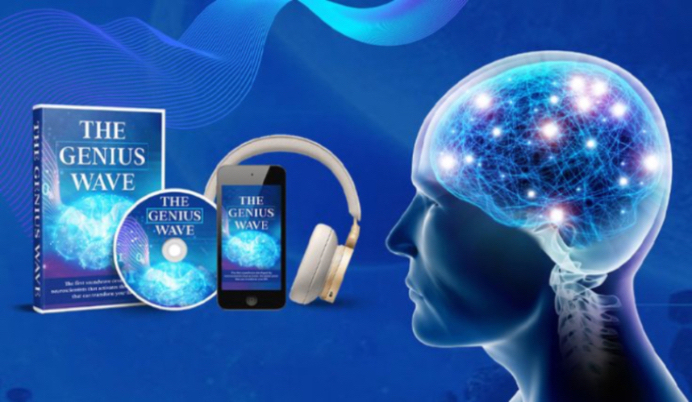Top NASA Scientist:
"Edison's 7-Second Brain Trick
Activates Your Superbrain"
Activate Your Genius Wave
(60-Day Money Back Guarantee)



Scientific References:
-
Venkatraman, R.
"You're 96 Percent Less Creative Than You Were as a Child. Here's How to Reverse That." Inc.com.
https://www.inc.com/rohini-venkatraman/4-ways-to-get-back-creativity-you-had-as-a-kid.html -
Kerley, J.
"Creative Inventive Design and Research."
https://ntrs.nasa.gov/api/citations/19940029213/downloads/19940029213.pdf -
Robinson, K.
"Do Schools Kill Creativity?"
https://www.youtube.com/watch?v=iG9CE55wbtY -
Uable (28 August 2023)
"The End of Education."
https://medium.com/@connect_75384/the-end-of-education-94f3a39fe97c -
Church, D., Yang, A., Fannin, J., & Blickheuser, K. (2022)
"The Biological Dimensions of Transcendent States: A Randomized Controlled Trial." Frontiers in Psychology, 13, 928123.
https://doi.org/10.3389/fpsyg.2022.928123 -
Herrmann, C. S., Strüber, D., Helfrich, R. F., & Engel, A. K. (2016)
"EEG Oscillations: From Correlation to Causality." International Journal of Psychophysiology, 103, 12-21.
https://doi.org/10.1016/j.ijpsycho.2015.02.003 -
Poe, G. R. (2017)
"Sleep is for Forgetting." Journal of Neuroscience, 37(3), 464-473.
https://doi.org/10.1523/JNEUROSCI.0820-16.2017 -
Crivelli-Decker, J., Hsieh, L.-T., Clarke, A., & Ranganath, C.
"Theta Oscillations Promote Temporal Sequence Learning." Neurobiology of Learning and Memory.
https://doi.org/10.1016/j.nlm.2018.05.001 -
Zielinski, M. C., Tang, W., & Jadhav, S. P. (2020)
"The Role of Replay and Theta Sequences in Mediating Hippocampal-Prefrontal Interactions for Memory and Cognition." Hippocampus, 30(1), 60-72.
https://doi.org/10.1002/hipo.22821 -
Henao, D., Navarrete, M., Valderrama, M., & Le Van Quyen, M. (2020)
"Entrainment and Synchronization of Brain Oscillations to Auditory Stimulations." Neuroscience Research, 156, 271-278.
https://doi.org/10.1016/j.neures.2020.03.004 -
Hanslmayr, S., Axmacher, N., & Inman, C. S. (2019)
"Modulating Human Memory via Entrainment of Brain Oscillations." Trends in Neurosciences, 42(7), 485-499.
https://doi.org/10.1016/j.tins.2019.04.004 -
Michael, E., Santamaria Covarrubias, L., Leong, V., & Kourtzi, Z. (2023)
"Learning at Your Brain's Rhythm: Individualized Entrainment Boosts Learning for Perceptual Decisions." Cerebral Cortex, 33(9), 5382-5394.
https://doi.org/10.1093/cercor/bhac426 -
Trost, W., Frühholz, S., Schön, D., Labbé, C., Pichon, S., Grandjean, D., & Vuilleumier, P. (2014)
"Getting the Beat: Entrainment of Brain Activity by Musical Rhythm and Pleasantness." NeuroImage, 103, 55-64.
https://doi.org/10.1016/j.neuroimage.2014.09.009 -
Trost, W. J., Labbé, C., & Grandjean, D. (2017)
"Rhythmic Entrainment as a Musical Affect Induction Mechanism." Neuropsychologia, 96, 96-110.
https://doi.org/10.1016/j.neuropsychologia.2017.01.004
Disclaimer: This product is not intended to diagnose, treat, cure or prevent any disease. James Rivers is a pen name used with the consent of our leading neuroscientist, who wishes to maintain personal privacy for himself and his family. The qualifications and credentials attributed to this name are genuine and verified. This measure is taken to protect the individual's privacy without misleading our customers. We appreciate your understanding. Thank you for respecting this privacy.


